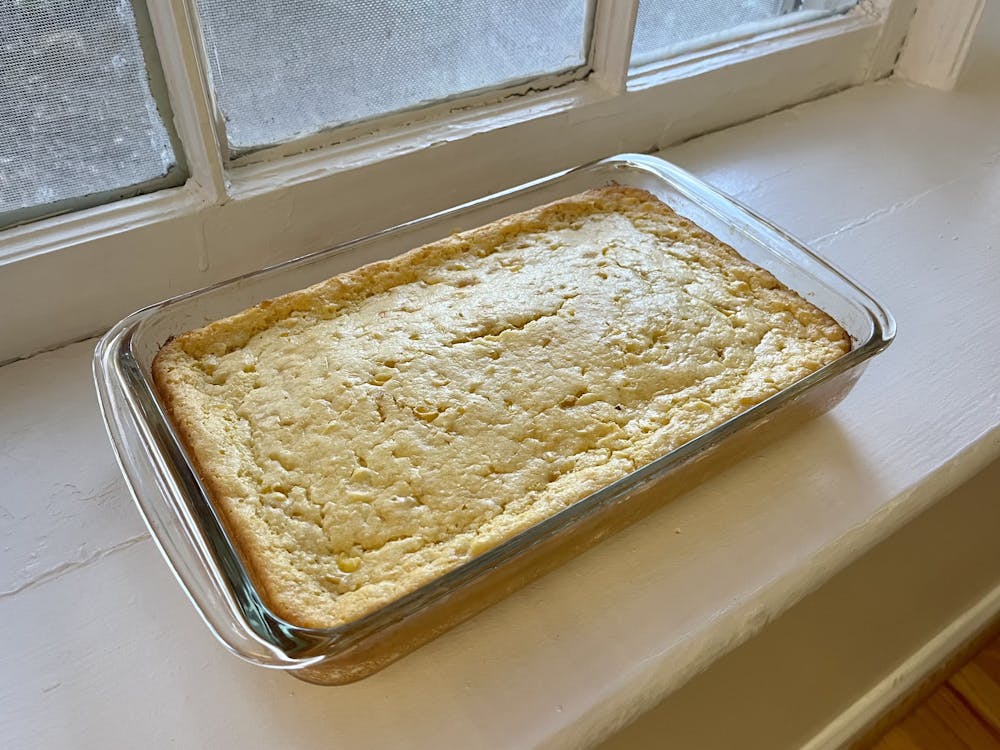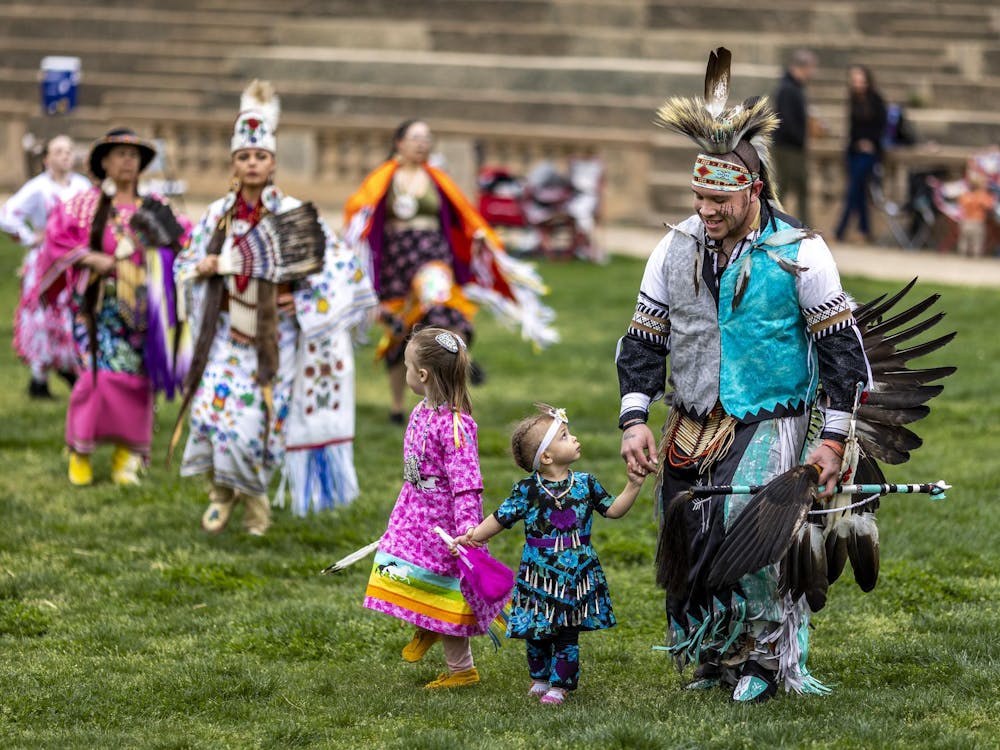First-year College students Ben Walters and Eve Immonen, members of the executive board of the University’s Native American Student Union chapter, helped organize the first-ever Native American powwow on Grounds.
“Powwows are gatherings all across the country. They’re a celebration of Native American traditional song and dance,” Immonen said. “It’s really a way for the Native community to come together around celebration.”
Walters said powwows normally begin with a roll call, both a variety of traditional songs and inter-tribal and specialty dances.
“In general, powwows are set up in two concentric rings,” Walters said. “There’s the inner ring, which is the dance circle, and the drums are either in the middle of that or off to one side along with the master of ceremonies.”
Following the ceremonial grand entry, attendees enjoyed lunch, a falconry presentation and a game of stickball. The event concluded with a final dance at 6 p.m.
Walters said although powwows typically take up to a year to organize, he and the executive team planned the event in just three months.
“We had about 400 people show up, which is almost unheard of for a first year powwow,” Walters said. “The Lakota, Taino, Tuscarora, Abenaki, Nottaway, Mi’kmaq, Cherokee, Saponi, among other tribes, were represented at our powwow.”
The number of Native American students at the University has declined from 27 to just 15 since 2009.
“Our club is very small,” Immonen said. “There were probably five executives who were working on this.”
The powwow was sponsored by the Women, Gender, and Sexuality program alongside the History, Anthropology and Music Departments, and involved the participation of a number of Native American individuals in the Charlottesville community.
“It’s very important in the Native culture to support one another and to foster support from the youth, so when people heard we were doing this we had a lot of support.” Immonen said. “I talked to grad students who were coming after their classes, there were some faculty members, and people from the Charlottesville community.”
Immonen said the event served in part to increase visibility of the Native American student population, and to foster an appreciation for authentic Native culture.
“I think this was a celebration, a way of showing people that we’re still here. I think it’s starting a conversation that’s correct,” Immonen said. “People use the word ‘powwow’ incorrectly all the time, as like, ‘We’re going to hang out,’ — and that’s not what a powwow is. It’s really this huge event that you have to organize, and it has a lot of tradition behind it.”
Immonen said the powwow afforded Native American students the opportunity to express pride in their shared experiences.
“We’ll show you how amazing our culture is,” Immonen said. “It’s a really great way of saying we’re still here and we’re still proud of who we are.”




